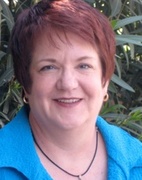 Monkey Business-New/PhotoSpin
Monkey Business-New/PhotoSpin
The top information sources for patients with a serious illness today are clear – their medical team and the Internet. The most active online are those living with chronic disease. Some 75 percent of these patients say their last health search affected a decision about how to treat a condition, compared with 55 percent of other e-patients, according to a Pew Research study.
The shift to online resources for healthcare information has also given birth to a new breed of "citizen" journalist, the patient reporter. Patients and caregivers are going directly to the information sources themselves, bringing along questions from their community and taking back vital, actionable knowledge.
During the past decade, increasing numbers of patients and caregivers have attended medical conferences where professionals gather to learn the latest clinical trial outcomes, new and promising treatments, best practices in managing cases and more. Once the province of medical professionals and those seeking to influence them, including pharmaceutical firms and medical supply vendors, medical conferences are now adding formal and informal patient forums to the agenda, and are starting to give patients a seat at the table too.
Typically the “news” from these conferences has been distributed via clinical and trade media, often in scientific jargon hard for lay people to understand or in financial jargon more focused on the profit potential of a new treatment than the actual impact on patients. Consumer media typically picks up the most dramatic announcements or those impacting the largest number of patients. The result for most patients is that it can take months and even years for the information from these conferences to filter down to patient education materials in easily understood language.
That’s changing for many chronic conditions. The Internet enables anyone with a keyboard to communicate with fellow patients right away. The advent of inexpensive, high quality digital cameras enables patient advocates to interview top experts in an unedited fashion and ask questions that get to the heart of what’s on the patient’s mind as they deal with living with their medical condition on a daily basis and also seek long term solutions.
A case in point is the American Society of Hematology Meeting to be held December 4 - 7, 2010 in Orlando, Florida. The four-day meeting draws more than 21,000 people and is considered the premier annual education and scientific event in the field of hematology (blood disorders). Blood cancer survivors will be there as patient reporters, bringing “news” to fellow patients that no other media will cover.
Chronic Lymphocytic Leukemia (CLL) patient reporters will include two survivors - Andrew Schorr, founder of Patient Power and Gretchen Cover who manages the 3,000 member CLL list for the Association of Cancer Online Resources. Multiple Myeloma survivor Mike Katz will be there for the International Myeloma Foundation.
Schorr, a former medical journalist, says this is how it should be. “Patients want transparency and by being on the inside of medical conventions we are getting it. Yay!” He adds, “We are a new force to contend with. It is becoming less about doctor-to-doctor communication and more about patient-to-patient or expert-to-patient-to-patient.”
The ASH Conference includes top international speakers which attracts top international patient advocates whose participation enables cutting edge clinical information to go back to their home countries. To understand this, consider the rare blood cancer Chronic Myelogenous Leukemia (also known as Chronic Myelocytic Leukemia or CML) which makes up 0.3 per cent of all cancers. The 4,870 new cases expected in the U.S. this year seems like a small number until you learn that only 249 new cases are expected in Australia. An advocate from Australia will be at ASH this year, as well as CML patient advocates from Canada, Venezuela, Israel, Germany, India, Malaysia and several other countries.
The impact doesn’t stop there. Reports provided in English on the 2010 ASH Conference on an international site for CML patient advocates will be translated into languages including Hebrew, German, Russian, Estonian and Spanish so that even more people can share and benefit from the knowledge.
In the U.S., National CML Society Executive Director Greg Stephens, says the key benefit of patient participation is empowerment. “We can bring breaking news directly to those most affected, empowering them to become their own best advocate.” He adds, “It’s more important than ever for patients and caregivers to take an active role in understanding the subtleties of their disease. Medical conferences such as ASH provide deep insights into emerging therapies and treatment protocols that could take a long time to trickle down to the local treatment facility.”





Add a CommentComments
There are no comments yet. Be the first one and get the conversation started!